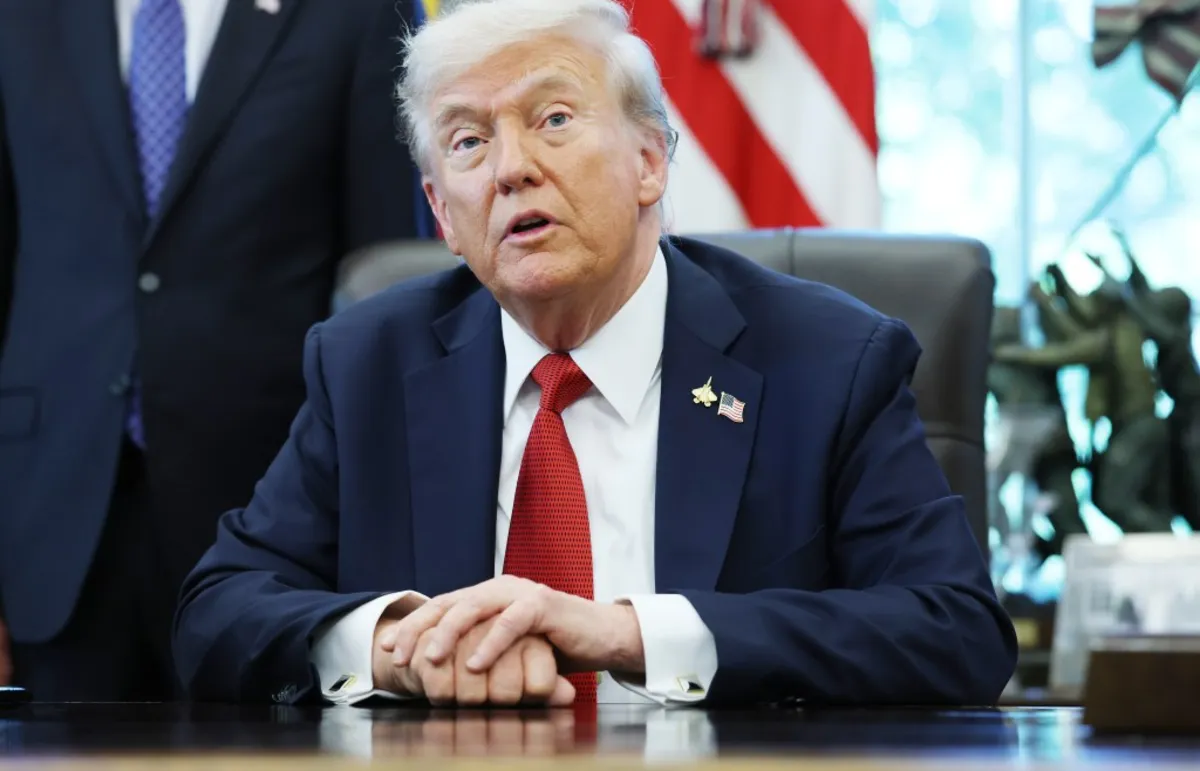
Former President Donald Trump has once again stirred the political waters by addressing the speculation surrounding his potential candidacy for the 2028 presidential election. Despite the stipulations of the 22nd Amendment of the U.S. Constitution, which prohibits any individual from being elected to the presidency more than twice, Trump has not shied away from promoting Trump 2028 merchandise. His former chief strategist, Steve Bannon, has even suggested that there is a detailed plan for Trump to maintain his influence in politics.
During a recent press interaction while traveling to Japan, Trump was asked about his future political ambitions. He responded ambiguously, stating, “Am I not ruling it out, you will have to tell me.” This statement has fueled speculation among supporters and opponents alike regarding his intentions for the upcoming election cycle.
One of the more unconventional theories circulating among political analysts is the possibility of Trump running for vice president, potentially with JD Vance as the presidential nominee. The speculation suggests that Vance could resign shortly after the election, enabling Trump to step back into the Oval Office. However, this theory clashes with the 12th Amendment, which specifies that “no person constitutionally ineligible to the office of President shall be eligible to that of Vice-President of the United States.”
Proponents of this theory argue that Trump could leverage eligibility criteria effective in 1804, the year the 12th Amendment was ratified. Trump himself claimed, “I would be allowed to” run for the vice presidency but acknowledged, “I think the people wouldn’t like that because it’s too cute. It wouldn’t be right.” This admission adds a layer of complexity to his potential political strategies.
The 22nd Amendment was ratified in 1951 largely in response to concerns about presidents serving indefinitely, a precedent set by Franklin D. Roosevelt, who was elected four times. This amendment has since shaped the landscape of U.S. presidential elections and is a significant barrier for Trump if he seeks a third term.
Despite the constitutional roadblocks, some Republicans are exploring ways to support Trump's aspirations. For instance, Representative Andy Ogles (R-TN) proposed a constitutional amendment earlier this year aimed at allowing Trump a third presidential term. However, passing such an amendment is no small feat; it requires a two-thirds vote in Congress, followed by ratification from 38 states.
As the political landscape evolves, the discussion surrounding Trump's potential candidacy for the 2028 presidential election continues to gain traction. Whether he will formally announce his intentions or pursue alternative routes remains to be seen, but one thing is clear: Trump’s influence in the Republican Party and American politics is far from waning.